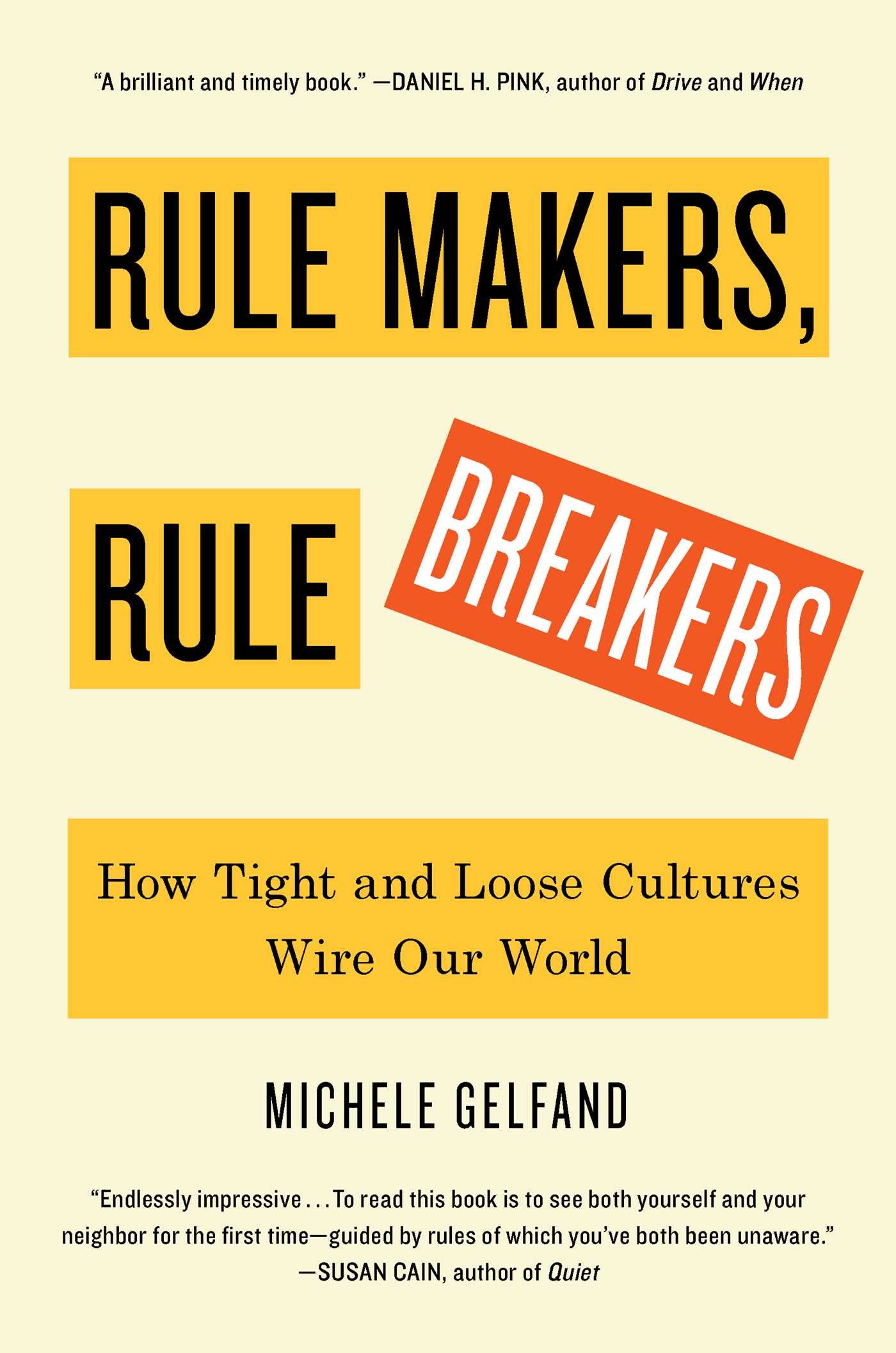Rule Makers, Rule Breakers by Michele Gelfand

One of the most fundamental traits of a culture is how tight or loose it is with its rules and social norms. Tightness and looseness fall along a spectrum. The tighter a culture, the more rules it has, the more clearly its social norms are defined, the more it values conformity and order, the more it prizes character traits such as conscientiousness and diligence, and the more harshly it punishes its rule-breakers.
Tight cultures prioritize order and stability. Tight cultures are well-organized, disciplined, good at coordinating large groups of people, and good at dealing with crisis situations. However, they are also vulnerable to closed-mindedness, inertia, and stagnation.
Loose cultures prioritize individual freedom and self-actualization. Loose cultures are dynamic, creative, tolerant, good at integrating outsiders, and good at adapting to change. However, they are also vulnerable to descending into chaos and disorder.
At the global level, examples of tight cultures include east Asia, south Asia, the Middle East, Germanic Europe, and Nordic Europe. Examples of loose cultures include romance Europe, Latin America, the English-speaking world, and Israel. The United States is a loose culture; the south is the tightest region, the northeast and west are loose, and the midwest is roughly in between.
A culture’s tightness tends to be proportional to the amount of threats it faces. The presence of threats makes it more important to coordinate people and maintain a strong group identity. People in precarious situations place a higher premium on order and stability.
At the global level, tight cultures tend to arise in countries with high population densities, frequent resource shortages, frequent natural disasters, low cultural diversity, and frequent invasions by outsiders. Within workplaces, tight cultures tend to arise in contexts where work is dangerous, close coordination is critical, creativity is a liability, and mistakes are costly. Within societies, working-class people tend to have a tighter culture than the middle and upper classes.
Loose cultures view tight cultures as smothering, while tight cultures view loose cultures as lawless. At their core, many cultural misunderstandings and political disagreements are simply instances of the universal tight vs loose debate. Tightness and looseness are inherently a trade-off; the benefits of a position always come bundled with predictable downsides. Going too far in either direction tends to lead to discontentment and backlash. When picking a position on the spectrum, moderation and pragmatism are usually the best approach.
